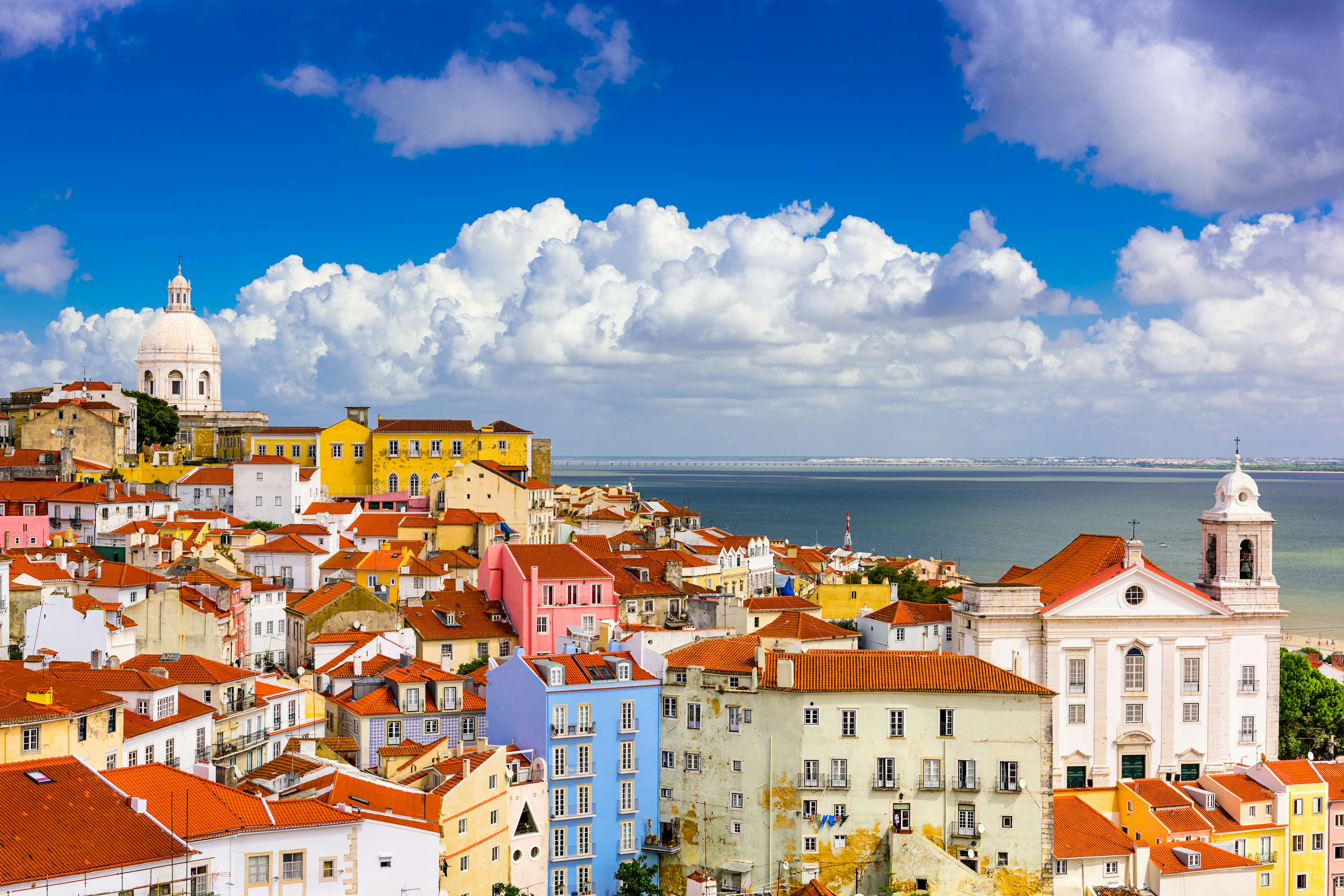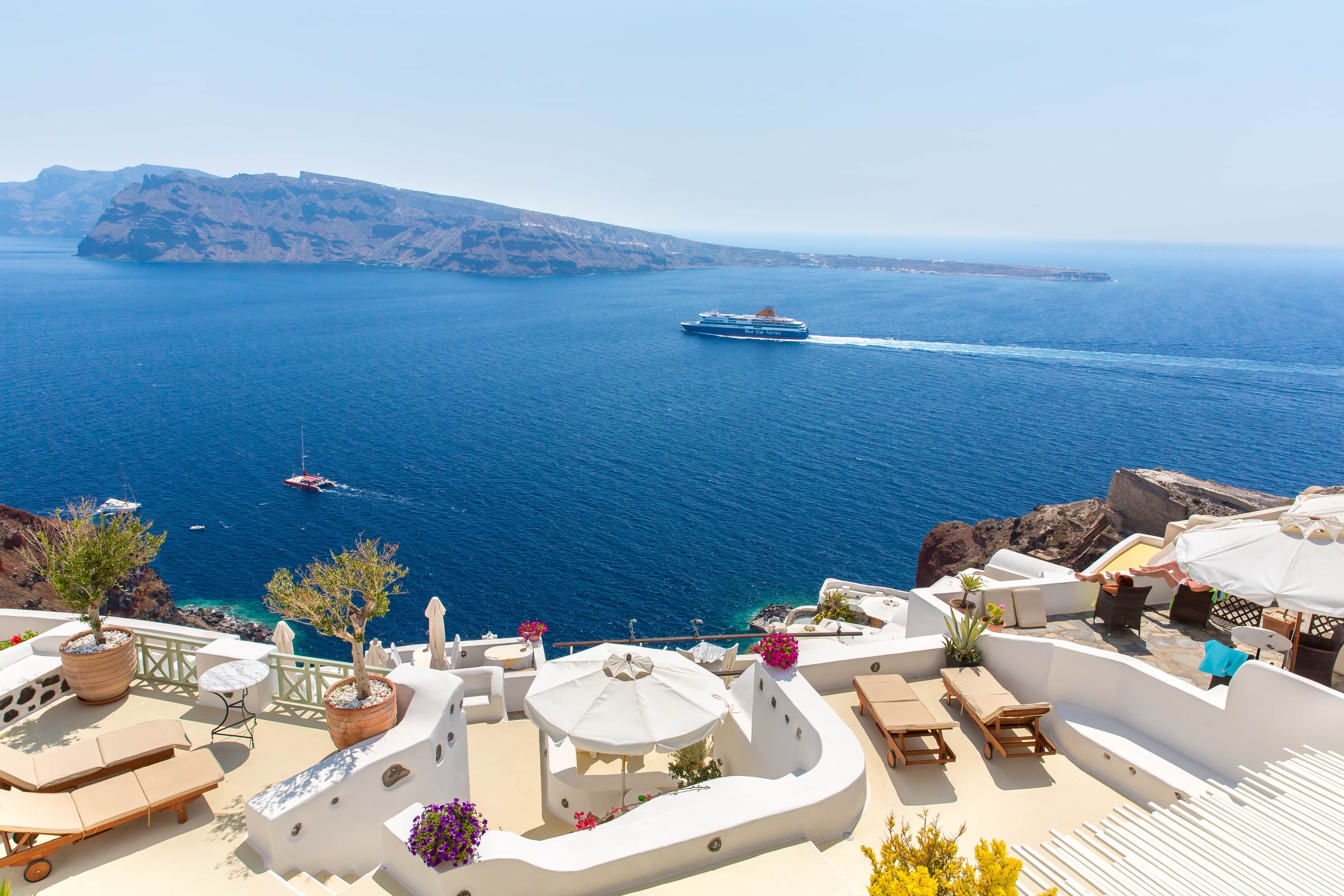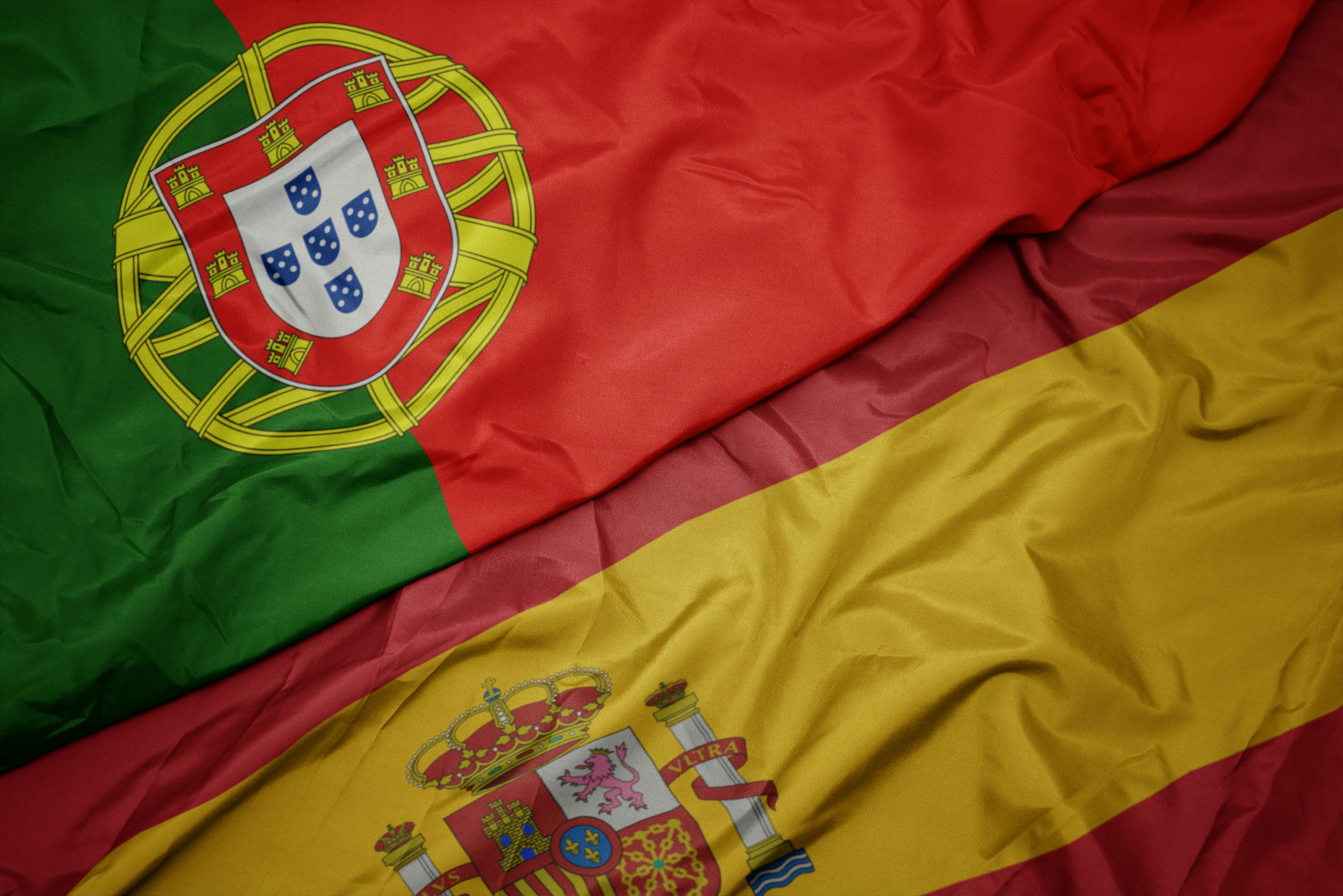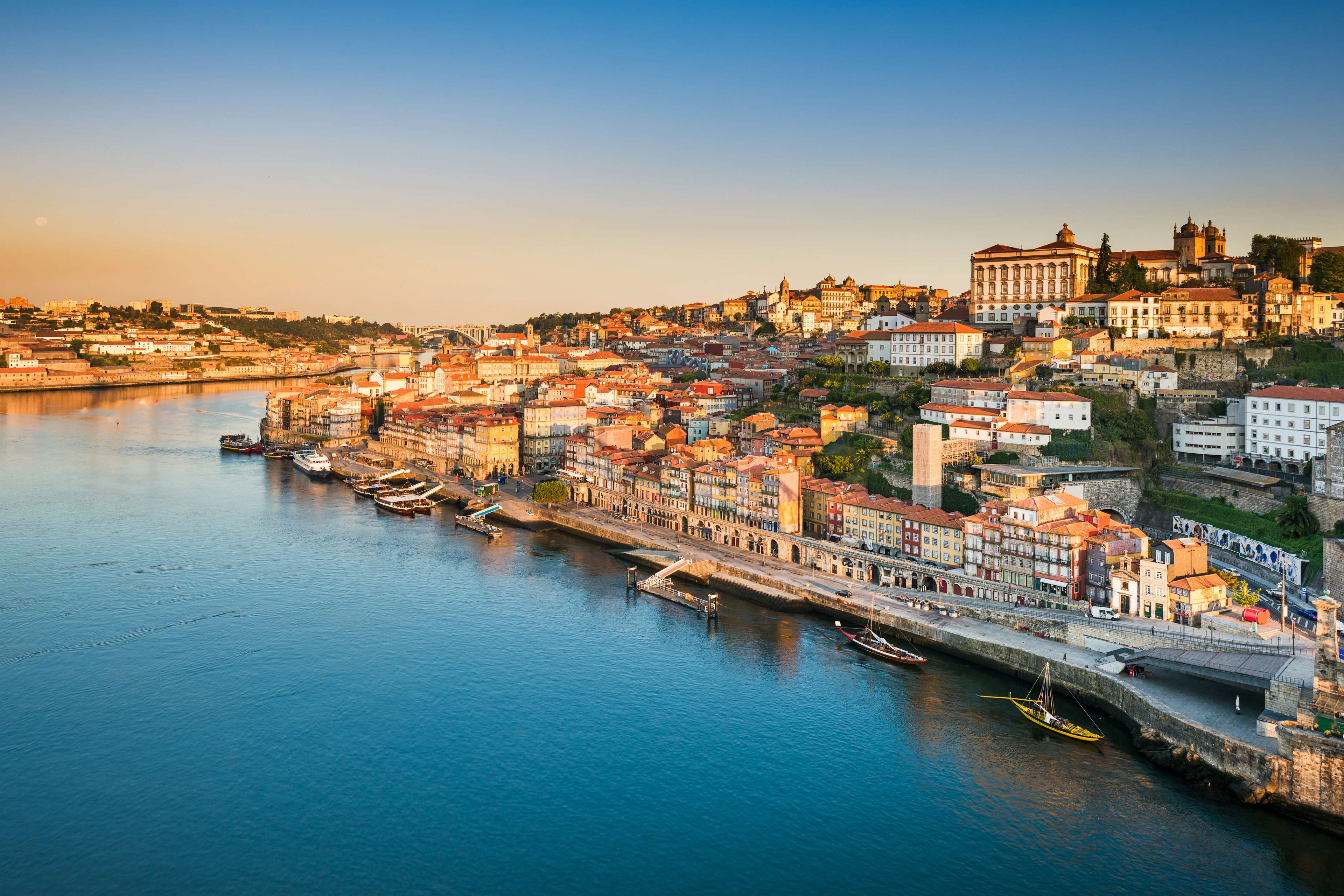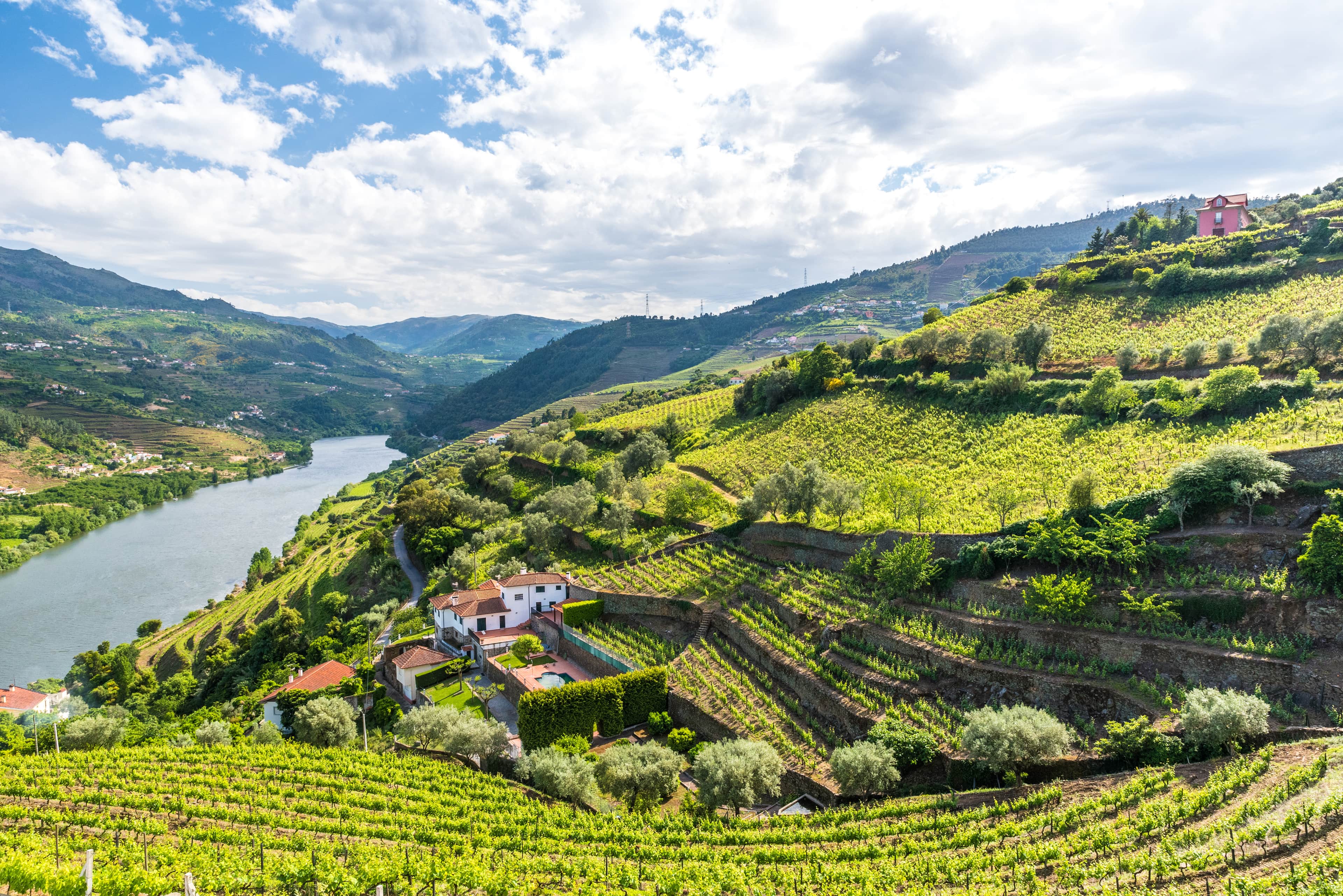The Portugal Golden Visa program is one of the most popular investment pathways to residency in Europe. It offers a Portuguese residence permit and, eventually, citizenship through various options with a minimum investment of €250,000.
Portugal’s investment program has attracted thousands of foreigners due to its numerous advantages, including visa-free travel and tax benefits. Since the program’s launch in 2012, over 12,000 investors and 20,000 family members have obtained residency, contributing more than €7 billion in investments to Portugal.
In this article, we will provide an overview of the 23 key benefits of the Portugal Golden Visa, as well as the essential requirements and process for obtaining residency.
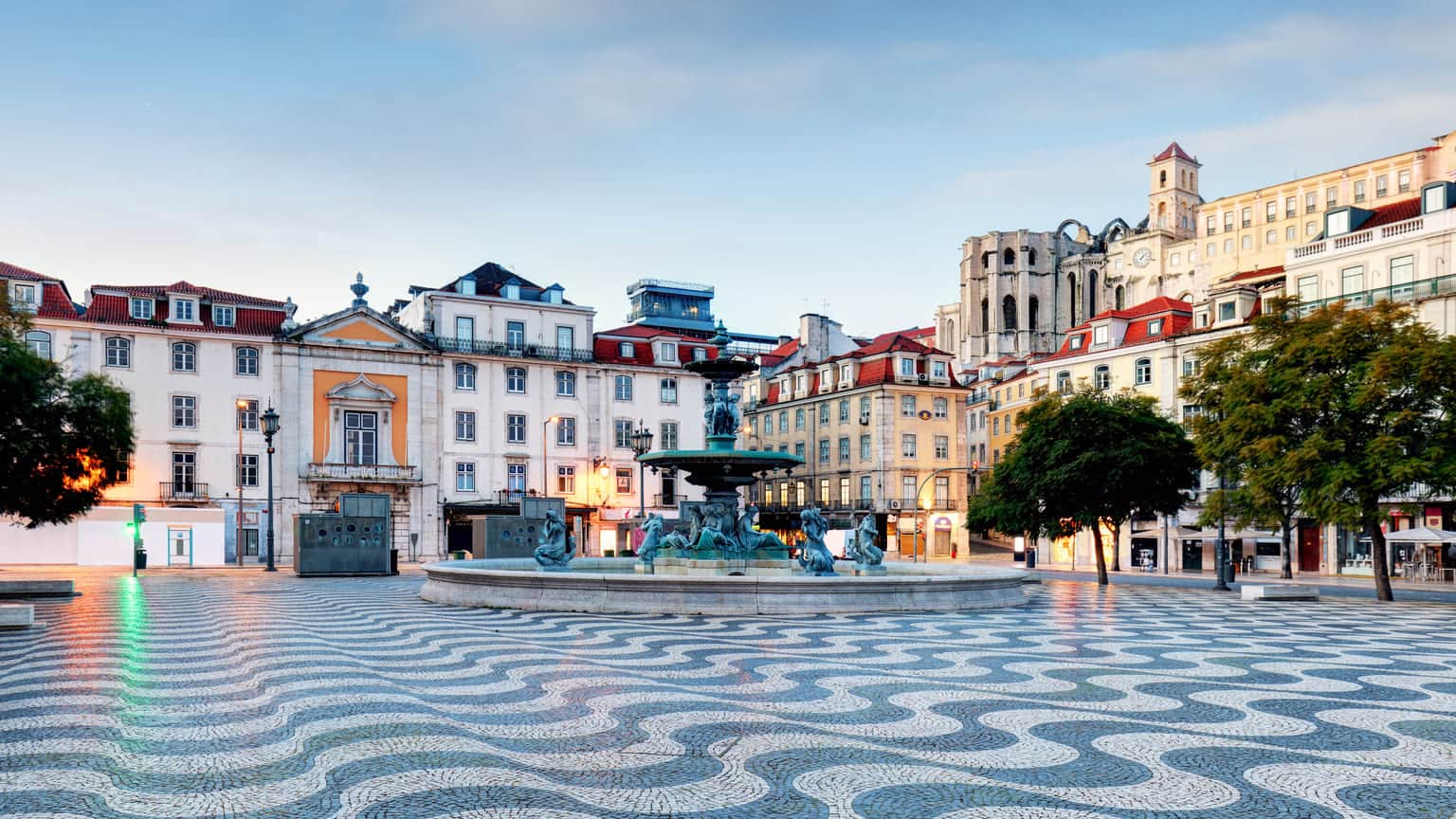
23 Benefits of Portugal Golden Visa
Share:
Overview of the Portugal Golden Visa Advantages
The Portugal Golden Visa program has a wide range of benefits, organised into three main categories: general advantages, tax benefits, and the benefits of living in Portugal.
General benefits. These focus on the practical advantages of obtaining this residency status:
visa-free travelling within the Schengen Area;
opportunity to move to Portugal;
no residency requirements;
path to permanent residency and citizenship;
investment opportunities;
family inclusion;
citizenship for newborns.
Tax benefits. These include a flat rate on global income for non-residents, exemptions on inheritance and wealth taxes, reduced VAT and corporate taxes, and access to the Non-Habitual Resident (NHR) tax regime and double taxation agreements.
Living in Portugal. The country offers a high quality of life at a lower cost, along with top-class healthcare and prestigious educational institutions. Residents enjoy social security, low crime rates, political stability, and natural beauty.
Portugal’s EU membership grants access to European markets, while its pleasant climate and cultural heritage add to its appeal. Efficient transportation in Lisbon and language learning programs further enhance life in Portugal.

Explore the benefits and drawbacks of the Portugal investment program versus other Golden Visas
#1. Visa-Free Travel within the Schengen Area
One of the key benefits of the Portugal Golden Visa is visa-free travel within the Schengen Area. This region includes 29 European countries that have eliminated passport controls at their mutual borders, allowing seamless travel between member states.
As a Portugal Golden Visa holder, you can travel freely within the Schengen Area for up to 90 days within any 180-day period without needing additional visas.
This benefit is particularly valuable for business travellers, tourists, and those with personal or family connections across Europe. It simplifies travel, eliminates the need for multiple visas, and enhances mobility for work, exploration, or investment in various European countries.
Shengen Countries for Visa-Free Travelling with the Portugal Golden Visa
#2. Moving to Portugal
The Portugal Golden Visa grants the right to live, work, and study in Portugal, making it an attractive option for those considering relocation. Portugal offers diverse cities and regions to suit various lifestyles and preferences.
Lisbon is ideal for those seeking an urban environment with modern amenities, cultural attractions, and a strong job market. It is a hub for tech professionals, entrepreneurs, and those enjoying a dynamic city life.
Porto is known for its historic charm and more relaxed pace and is perfect for those who appreciate culture, architecture, and a lower cost of living compared to Lisbon. It is a great choice for families and retirees seeking a balance between city life and tranquillity.
Algarve is a top destination for retirees and those looking for a slower-paced lifestyle. Known for its beautiful beaches, golf courses, and mild climate, Algarve offers a relaxed, outdoor-oriented lifestyle.
Cascais is a coastal town near Lisbon, popular among expats and families seeking a blend of luxury living and excellent schools. It is a great option for those wanting a more suburban environment with easy access to Lisbon.
Madeira is a natural haven with a mild climate year-round. It is a great option for remote workers, retirees, and nature enthusiasts.
#3 Minimal Residency Requirements
When comparing the Portugal Golden Visa program to other residency options like work, study, or Digital Nomad Visas, the difference in residency requirements is notable.
To maintain your Portugal Golden Visa, you must spend a minimum of seven days in Portugal during the first year of your residency permit.
Over five years, you only need to spend a total of 35 days in Portugal to keep your Golden Visa. This minimal time commitment allows you to meet the residency requirements without permanently relocating or disrupting your lifestyle.
To maintain the other types of residence permits, you cannot leave Portugal for more than 6 consecutive months or more than 8 months in total during the validity of your residence permit.
#4. Path to Permanent Residency and Citizenship
Even with minimal residency requirements, you can still progress toward permanent residency and citizenship in Portugal. After five years of maintaining your Golden Visa and fulfilling the stay obligations, you become eligible to apply for both.
Permanent residency. Unlike the initial residency permit, which requires periodic renewals, permanent residency allows you to live in Portugal indefinitely. The only requirement is replacing your permanent resident card every 10 years. This status grants you most of the same rights as Portuguese citizens, including the ability to work, study, and access healthcare.
To qualify for permanent residency, you must:
maintain your investment for at least five years;
fulfil the minimum stay requirements of 7 days in the first year and 14 days every two years thereafter;
demonstrate basic knowledge of Portuguese at the A2 level.
Citizenship. After holding temporary residency for five years, you may apply for Portugal citizenship. To obtain a passport, you must:
maintain continuous residency in Portugal for at least five years;
demonstrate sufficient knowledge of Portuguese at the A2 level;
have a clean criminal record and be of good standing in the community.
A Portuguese passport allows visa-free or visa-on-arrival access to over 170 countries, including the UK, the US, Japan, and Australia, making it one of the most powerful passports globally.
Complete list of visa-free countries for citizens of Portugal
#5. Investment Opportunities
The Portugal Golden Visa program offers a range of investment opportunities that lead to residency.
Previously, real estate was a popular investment choice, but with its cancellation, the focus has shifted to other options. By 2023, investments in eligible funds accounted for nearly 30% of total Golden Visa applications.
Investment options for obtaining a residence permit in Portugal include:
Purchasing shares of investment and venture funds — €500,000.
Supporting the restoration and conservation of national cultural heritage — €250,000.
Investment in research activities — €500,000.
Investments in a new or established Portuguese business that will provide or maintain at least 5 jobs — €500,000.
Creating a business that will provide at least 10 new jobs — no minimum investment required.
The investment amount remains the same regardless of family size. However, families incur higher fees due to additional charges for each family member included in the application.
Applicants who invest in fund units can recover their investment by selling the assets after 5 to 10 years.
#6. Family Inclusion
The Portugal Golden Visa program allows you to include your family members in your application.
Spouse or legal partner. The couple must be either in a registered marriage or in a common-law marriage for at least two years.
Dependent children. Children under 18 are automatically eligible for inclusion. Children aged 18 to 26, such as those financially dependent on the investor or enrolled in full-time education, can also be added to the application.
Dependent parents. Parents of both the main investor and their spouse can be included, provided they are financially dependent on the applicant. This is particularly beneficial for those wishing to bring ageing parents to live with them in Portugal.
#7. Citizenship for Newborns
Portugal follows the principle of jus sanguinis, or “right of the blood, ” which refers to the legal concept by which a person’s nationality or citizenship is determined by the nationality or citizenship of their parents rather than by the place of birth.
However, jus soli, or "right of the soil," is also applied in certain cases, allowing children born in Portugal to acquire citizenship even if their parents are not Portuguese citizens.
For newborns to qualify for automatic Portuguese citizenship at birth, the following conditions must generally be met:
at least one parent must have lived in Portugal for at least one year at the time of the child’s birth;
the parent must hold a valid residence permit, such as the Portugal Golden Visa, during this period.
Once these conditions are met, the child born in Portugal can automatically become a Portuguese citizen. This grants the child full rights and privileges of Portuguese citizenship, including access to public services, healthcare, and 170 visa-free destinations.

To ensure your child’s citizenship, you must file an application with the local civil registry
#8. Flat Tax Rate on Global Income for Non-residents
If Golden Visa holders spend less than 183 days in Portugal, they are not considered tax residents. Non-residents pay a flat tax of 25% on income earned within the country, such as employment income or business profits.
For residents, taxes are levied on a progressive scale, ranging from 14.5 to 48% on worldwide income.
#9. No Inheritance and Wealth Taxes
Portugal does not impose inheritance tax on spouses, children, or parents. Instead, a 10% stamp duty applies to inherited assets, but close family members are exempt. This allows wealth to be passed on to direct descendants without significant tax liabilities.
Portugal also does not have a general wealth tax. However, a municipal property tax (AIMI) applies to real estate valued above €600,000. For those owning multiple properties, this tax is based on the combined value of all eligible real estate holdings.
#10. Reduced VAT & Corporate Taxes
Portugal offers competitive tax rates, particularly advantageous for businesses and investors. The standard Value Added Tax (VAT) rate in mainland Portugal is 23%, with reduced rates of 13% and 6% for essential goods and services like food, healthcare, and cultural events.
In the autonomous regions, the rates differ:
in the Azores, the standard rate is 16%, and the reduced rates are 9% and 4%;
in Madeira, the standard rate is 22%, and the reduced rates are 12% and 5%.
The International Business Centre of Madeira (IBC), a Portuguese free trade zone, provides attractive tax benefits and incentives for businesses. The IBC includes three main sectors for investment:
The Industrial Free Trade Zone.
The International Shipping Register (MAR).
International Services.
Companies located in the Madeira Free Trade Zone pay a corporate tax of 5%, compared to the standard rate of 21%. These tax incentives create an attractive environment for entrepreneurs and companies looking to establish or expand their operations in Portugal.
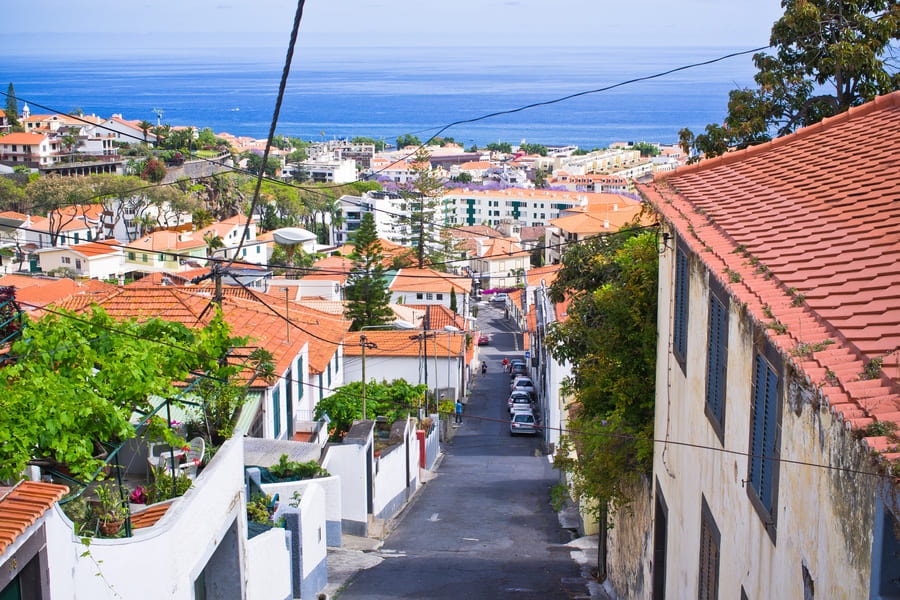
The European Commission has approved Madeira's reduced tax rate as a form of legal State Aid, and its validity has been extended until the end of 2027
#11. Special Tax Regime
The Non-Habitual Resident (NHR) tax regime in Portugal previously offered a flat tax rate on Portuguese-source income for qualifying entrepreneurs, professionals, retirees, and high-net-worth individuals.
However, starting in 2024, the NHR regime was replaced by the IFICI regime. This new regime focuses on scientific research, start-ups, and specific professions, applying a 20% tax rate on qualifying income.
#12. Double Taxation Agreements
Portugal has established Double Taxation Agreements (DTAs) with over 70 countries, ensuring that individuals and businesses do not pay taxes on the same income in both Portugal and another country.
Under these agreements, foreign income—such as dividends, interest, and pensions—may be taxed at reduced rates or exempt from Portuguese taxation if already taxed in the source country.
These agreements are particularly beneficial for Golden Visa holders who maintain financial interests abroad.
#13. High Quality of Life with a Lower Cost
Portugal offers a high quality of life at a relatively lower cost compared to other developed countries. Many people, including those moving from the US, choose Portugal for its affordability.
Housing costs are more reasonable, whether renting or buying property. Daily expenses, such as groceries, dining, and utilities, are also lower. Healthcare and education are accessible and less expensive.
This cost-effective lifestyle, combined with Portugal’s safety, stability, and pleasant climate, makes it an attractive destination for those seeking financial relief without sacrificing quality of life.
Comparative cost of living in the US, the UK, and Portugal
#14. Access to Top-Class Healthcare
Portugal has a dual healthcare system consisting of public and private sectors. The public healthcare system, Serviço Nacional de Saúde (SNS), provides affordable medical services, including general care, specialist consultations, and hospital treatments, often at little to no cost. Private healthcare is also widely available in Portugal, offering shorter wait times and more personalised services.
The quality of medical care in Portugal is reflected in the country’s high life expectancy, averaging 81 years, according to the World Population Review.
Golden Visa holders can obtain the European Health Insurance Card (EHIC), allowing access to state-provided healthcare during temporary stays in other EU countries, as well as Iceland, Liechtenstein, Norway, Switzerland, and the UK. The card ensures the same conditions and costs as residents of the host country but does not replace travel insurance or cover private healthcare, medical repatriation, or non-medical costs.
#15. Prestigious Education
Portugal offers a range of prestigious educational institutions, making it an attractive destination for families seeking quality education for their children.
Schools. Public schools are free for residents and provide a good standard of education. Private schools offer more specialised programs and smaller class sizes. Portugal is also home to well-regarded international schools that follow globally recognised curricula, such as the International Baccalaureate (IB) and British or American systems, with instruction entirely in English.
Universities. Portugal’s universities are highly respected, particularly in fields like engineering, business, and the sciences. Institutions such as the University of Lisbon and the University of Porto are known for their academic excellence and research opportunities.
A diploma from Portugal is generally recognised across the European Union and in countries that are part of the European Higher Education Area (EHEA), thanks to agreements like the Bologna Process. Outside the EU and EHEA, recognition of a Portuguese diploma may vary and typically requires validation or equivalency assessments based on the destination country’s regulations.
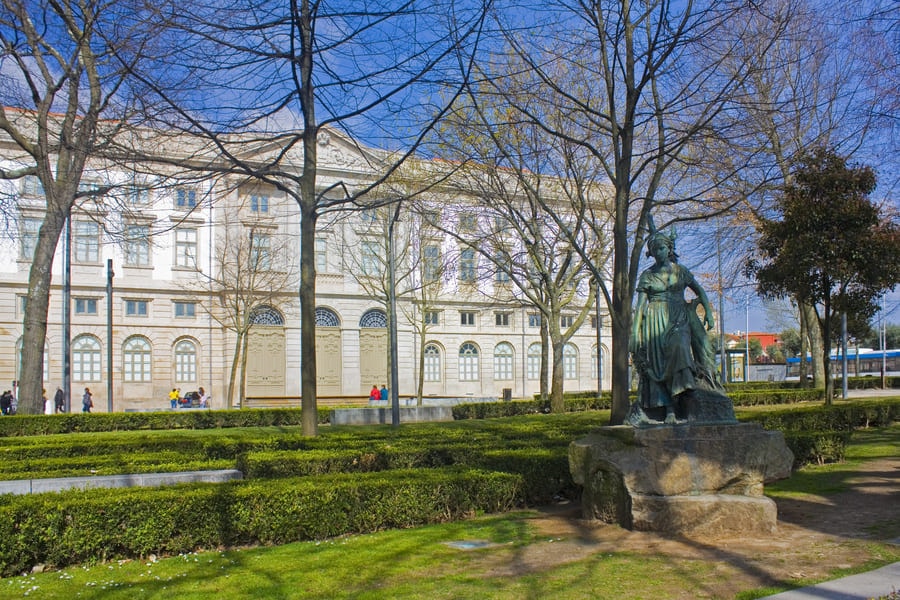
The University of Porto is recognised as the leading university in Portugal and consistently ranks among the top 100 higher education institutions in Europe
#16. Low Crime Rates
In 2024, Portugal was ranked 7th in the Global Peace Index, recognising it as one of the safest countries worldwide. This ranking is based on 23 factors, including crime rates, respect for citizens' rights and freedoms, the availability of firearms, and others.
Urban areas such as Lisbon and Porto are well-patrolled, and while petty crime exists, it is relatively rare compared to other major cities like Paris or London. This strong sense of security, combined with a welcoming community, contributes to Portugal’s reputation as a peaceful and safe place to live and raise a family.
#17. Stable Political and Economic Environment
Portugal’s economy is projected to grow by around 2% in 2024, according to the International Monetary Fund (IMF). This growth is driven by steady economic recovery, supported by strong exports, tourism, and investment in infrastructure.
Despite global uncertainties, Portugal’s stable economic policies and European Union membership provide a resilient foundation for continued growth. The IMF’s outlook indicates that Portugal will maintain its positive economic trajectory.
#18. Access to European Union Markets
As a member of the European Union, Portugal provides Golden Visa holders with access to one of the largest and most integrated markets in the world. This enables businesses and investors to operate freely across all EU member states, benefiting from the free movement of goods, services, capital, and people.
Companies based in Portugal can trade within the EU without customs barriers or tariffs, facilitating the expansion of operations and access to a market of over 450 million consumers. Additionally, EU membership ensures regulatory stability and offers access to various funding opportunities, further enhancing Portugal’s appeal to investors and entrepreneurs.
#19. Rich Cultural Heritage
Portugal’s cultural heritage is reflected in its many historical landmarks and architectural treasures. In Lisbon, the Belém Tower and Jerónimos Monastery stand as symbols of the country’s maritime history and are UNESCO World Heritage Sites.
In Porto, the Clérigos Tower and São Bento Railway Station showcase the city’s unique architectural style and artistic flair.
The mediaeval Alcobaça Monastery and the Convent of Christ in Tomar highlight Portugal’s deep religious and historical roots. These landmarks, along with numerous festivals and traditions, make Portugal a culturally desirable destination for Golden Visa holders.

São Bento Railway Station in Porto is famous for its beautiful azulejo tilework. The station, opened in 1916, features over 20,000 blue and white tiles, making it a cultural landmark and a must-see for visitors
#20. Geographic Location for Travelling within Portugal and Beyond
Portugal’s location on the western edge of Europe offers connectivity to European and international destinations.
Travel by plane. Flights from Lisbon to major European cities, such as London, Paris, and Madrid, typically take around 2—3 hours. Direct flights to the US, including cities like New York and Boston, take 6—8 hours, while flights to Brazil are about 8—10 hours.
Travel by car. For those preferring road travel, Portugal is well-connected by highways, making it easy to drive to neighbouring Spain and explore Europe by car. This accessibility makes Portugal a convenient hub for both travel and business activities.
The Atlantic coastline provides stunning ocean views, opportunities for water sports, and easy access to maritime trade routes.
Within Portugal, there are also numerous opportunities for travel. For example, Lisbon’s public transportation network is well-integrated, offering several options for getting around the city efficiently:
the Lisbon Metro is the backbone of the city’s public transport, with four lines connecting key areas;
Lisbon’s iconic yellow trams, particularly Tram 28, navigate the narrow streets and steep hills of historic neighbourhoods, providing both scenic views and practical transit;
the city’s bus network, operated by Carris, covers areas not accessible by the metro or tram;
suburban trains offer a fast and efficient option for those commuting between Lisbon and nearby towns;
the Santa Justa Lift is a unique vertical elevator that connects the lower streets of Baixa with the higher Largo do Carmo, offering stunning views;
funiculars like the Glória, Bica, and Lavra also make travelling up Lisbon’s hills easier.
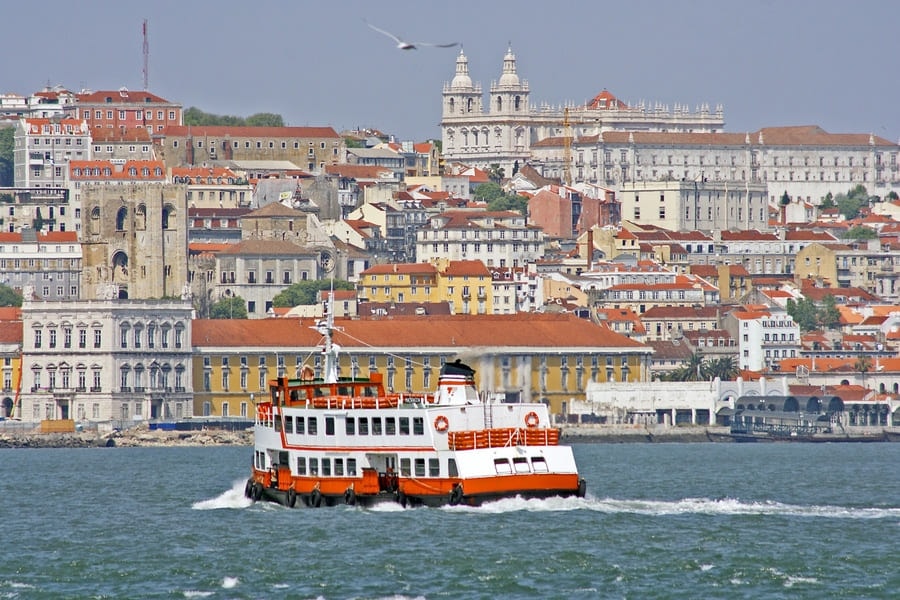
Lisbon also offers ferry services across the Tagus River, connecting the city to areas on the opposite bank, such as Cacilhas and Montijo
#21. Pleasant Climate
Portugal enjoys a mild Mediterranean climate, making it an appealing destination for those seeking comfortable weather year-round. In Lisbon and Porto, summer temperatures typically range +25°C…30°C, while winters are mild, with temperatures rarely dropping below +10°C.
In the southern Algarve region, summer temperatures can reach +35°C, while winter remains pleasant at around +15°C…18°C.
The interior regions experience more seasonal variation, with warmer summers and colder winters, but overall, Portugal offers a climate suitable for a variety of outdoor activities year-round.
#22 Savings in EU and Portugal Banks
Portugal’s banking system is part of the EU’s, meaning that money in your bank accounts is protected by the EU’s deposit guarantee scheme. This scheme insures deposits up to €100,000 per person.
Portuguese banks, like other EU banks, offer various savings accounts, including fixed-term deposits with competitive interest rates. Several reliable banks provide services tailored to both residents and expatriates:
Caixa Geral de Depósitos (CGD). Portugal’s largest state-owned bank offers savings accounts, fixed-term deposits, and investment products. Annual maintenance fees for standard accounts range from €20 to €30.
Millennium BCP. One of Portugal’s largest private banks, Millennium BCP provides savings accounts, insurance, and investment services. Maintenance fees typically range from €30 to €50 annually, depending on the account type.
Novo Banco. Known for its digital services, Novo Banco offers competitive savings options with maintenance fees ranging from €30 to €60.
Santander Totta. A subsidiary of the Spanish Santander Group, this bank provides a wide range of banking products, including savings accounts and mortgage services. The annual maintenance fee is €20 to 40.
Portuguese banks also offer online banking services, providing convenient financial management and customer support in multiple languages, beneficial for expatriates.
Portugal has an extensive network of ATMs, known as Multibanco. With over 12,000 ATMs across the country, you can easily withdraw cash, pay bills, transfer money, purchase tickets, or top up your mobile phone. Multibanco ATMs are connected to all major Portuguese banks and are available 24/7. Transaction fees are generally low, especially when using cards from Portuguese banks.

When using ATMs in Portugal, you'll encounter terms such as “Levantar dinheiro” for withdrawing money, “Depósito de dinheiro” for depositing money, and “Saldo" to check your balance
#23. Portuguese Language Learning and Integration Programs
Portugal offers a variety of language learning and integration programs to help newcomers settle into their new environment. These programs are available through public institutions, community centres, and private language schools. For Golden Visa holders, learning Portuguese can be beneficial for both personal and professional integration.
Many language schools offer courses specifically designed for expatriates, focusing on practical language skills that facilitate day-to-day interactions and enhance cultural understanding.
Portugal Golden Visa Requirements
To qualify for the Portugal Golden Visa, applicants must meet specific investment requirements and meet eligibility criteria.
Investment option requirements to choose from:
Cultural investment — €250,000 towards the preservation of Portugal’s cultural heritage, including support for arts, architecture, or heritage conservation projects.
Investment in fund units — €500,000 in a qualifying investment fund, which may focus on sectors like technology or renewable energy.
Research and development — €500,000 in scientific or technological research conducted by public or private institutions in Portugal.
Business investment — €500,000 in an existing Portuguese company or a new business that creates or sustains at least five jobs for Portuguese residents.
Opening a company that will create at least 10 jobs. There is no minimum sum requirement.
The investment must be maintained for at least five years. Selling the company or fund units before this period could lead to the loss of residency rights.
Minimum stay requirement. Applicants must spend at least 7 days in Portugal per year.
Clean criminal record. Investors must provide a clean criminal record from their country of origin and from any country where they have resided for more than one year.
Proof of funds. Applicants must have sufficient financial resources to support themselves during their stay in Portugal and prove that the funds used for the investment are legally sourced.

Discover 9 most popular Golden Visa programs and choose the best one for your goals.
Process of Obtaining the Portugal Golden Visa
Obtaining residency in Portugal by investment typically takes 12 months or more. Investors are not required to take a language test, and most procedures can be conducted remotely.
Once the application for a residence permit is filed and the state fee is paid, the five-year naturalisation period for obtaining citizenship begins.
1 day
Preliminary Due Diligence
Certified Anti-Money Laundering officers conduct preliminary Due Diligence to reduce the risk of refusal to 1%.
Certified Anti-Money Laundering officers conduct preliminary Due Diligence to reduce the risk of refusal to 1%.
1—2 weeks
Selection of an investment option
The investor chooses a fund, company, or cultural project with assistance from lawyers. This can be done remotely, with reports and necessary information provided.
The investor chooses a fund, company, or cultural project with assistance from lawyers. This can be done remotely, with reports and necessary information provided.
1—2 weeks
Registration of a tax number
The investor is issued a unique nine-digit Número de Identificação Fiscal (NIF), necessary for various transactions in Portugal. A tax representative can obtain the NIF on behalf of the applicant.
The investor is issued a unique nine-digit Número de Identificação Fiscal (NIF), necessary for various transactions in Portugal. A tax representative can obtain the NIF on behalf of the applicant.
1—1.5 months
Opening a bank account
The investment must be made from the applicant’s account in a Portuguese bank. Lawyers can assist, but the investor’s presence is required. Once the account is set up, funds for the investment can be transferred.
The investment must be made from the applicant’s account in a Portuguese bank. Lawyers can assist, but the investor’s presence is required. Once the account is set up, funds for the investment can be transferred.
2—3 weeks
Fulfilment of the investment condition
The investor transfers money and obtains the necessary documents. For example, in the case of purchasing investment fund units, this includes the confirmation of the transfer and the agreement with the fund.
The investor transfers money and obtains the necessary documents. For example, in the case of purchasing investment fund units, this includes the confirmation of the transfer and the agreement with the fund.
5—6 months
Collection of documents and application
The investor receives an individual list of documents to prepare. Subsequently, the lawyer completes the state form, and ensures documents are translated and certified.
Electronic copies are submitted to the Agency of Integration, Migrations, and Asylum (AIMA).
The investor receives an individual list of documents to prepare. Subsequently, the lawyer completes the state form, and ensures documents are translated and certified.
Electronic copies are submitted to the Agency of Integration, Migrations, and Asylum (AIMA).
1—2 weeks
Submission of biometric data
The investor and their family travel to Portugal to submit the original documents and their biometric data for residence permit cards. An appointment for fingerprinting is booked in advance.
The investor and their family travel to Portugal to submit the original documents and their biometric data for residence permit cards. An appointment for fingerprinting is booked in advance.
6—8 months
Due Diligence
AIMA conducts a Due Diligence check. If approved, a confirmation document is issued, allowing the holder to reside in Portugal until the residence permit cards are ready.
AIMA conducts a Due Diligence check. If approved, a confirmation document is issued, allowing the holder to reside in Portugal until the residence permit cards are ready.
2 weeks
Obtaining residence permit cards
Upon approval, the investor pays the fee for the residence permit cards, which are prepared within 2 weeks and issued to the investor or their lawyer by proxy. The residence permit card is valid for two years and can be renewed an unlimited number of times.
Upon approval, the investor pays the fee for the residence permit cards, which are prepared within 2 weeks and issued to the investor or their lawyer by proxy. The residence permit card is valid for two years and can be renewed an unlimited number of times.
Every 2 years
Residence permits renewal
The renewal process mirrors the initial application, requiring document submission, biometrics, and new cards.
To maintain the permit, the investor and family must spend at least 7 days a year in Portugal and retain their investments.
The renewal process mirrors the initial application, requiring document submission, biometrics, and new cards.
To maintain the permit, the investor and family must spend at least 7 days a year in Portugal and retain their investments.
Other Ways to Obtain Residency in Portugal
Digital Nomad D8 Visa. This visa is tailored for digital nomads and remote workers who can perform their jobs from anywhere, including Portugal.
The Digital Nomad Visa is issued for two years to remote workers earning at least €3,280 per month. If they spend at least 16 months in Portugal during this period, the visa can be extended for additional three years.
Passive Income D7 Visa. The visa is designed for retirees or individuals with a stable passive income who wish to reside in Portugal. Qualifying passive income includes pensions, rental payments, interest, and royalties. The income should equal or exceed the minimum wage in Portugal, which is €820 monthly in 2024.
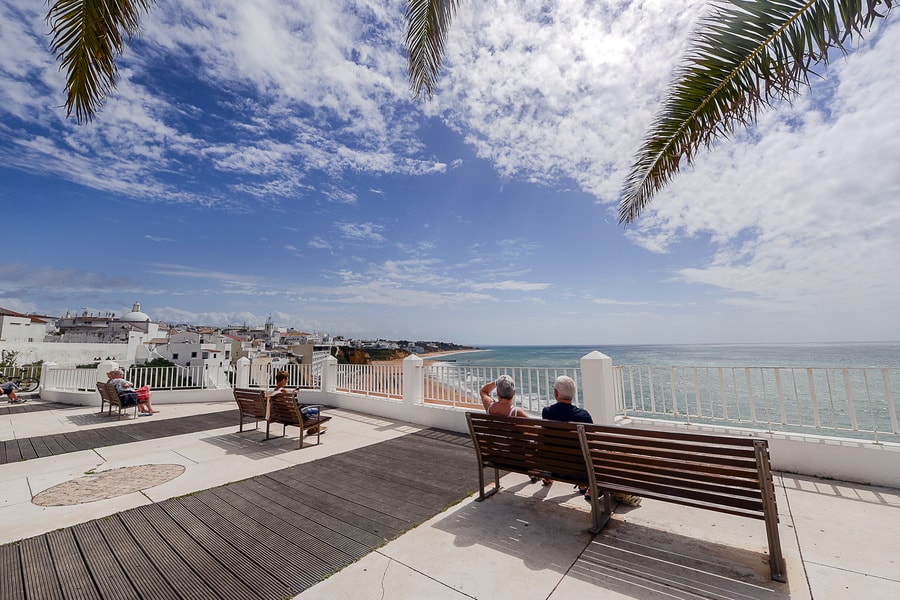
Ranked second in the world, the Portugal is the leader in Europe and is considered the top country for retirement due to its affordable cost of living, quality healthcare, and climate
Entrepreneur D2 Visa. The D2 visa is designed for entrepreneurs and independent workers who wish to start a business or professional activity in Portugal. Applicants must buy a local company or its shares or create a branch of an existing legal entity.
Another option is to establish a new company in the country and provide a detailed business plan outlining development prospects.
Portugal Startup Visa. The Startup Visa aims to attract foreign entrepreneurs looking to establish innovative businesses in Portugal. The business must focus on technology and have the potential for significant growth and scalability.
Applicants must be accepted into a certified Portuguese business incubator, which will submit an application to IAPMEI, the Portuguese Agency for Competitiveness and Innovation. IAPMEI evaluates projects based on their potential to achieve a turnover of over €325,000 per year or accumulate assets exceeding €325,000 annually within five years after the incubation period.
Key Takeaways from the Article
The Portugal Golden Visa program offers minimal residency obligations, requiring an investment of at least €250,000 and a stay of just 7 days per year.
Investment options include purchasing investment fund units, supporting cultural heritage projects, and creating a business.
After five years of maintaining the Golden Visa and meeting residency requirements, holders can apply for permanent residency and citizenship. A Portuguese passport allows visa-free travel to over 170 countries.
Portugal provides several tax benefits, such as double taxation agreements and exemptions on inheritance and wealth taxes.
Ranked as one of the safest countries in the world, Portugal offers a stable political and economic environment and benefits from low crime rates.
As a member of the European Union, Portugal provides Golden Visa holders with access to the EU’s large, integrated market, benefiting businesses and investors looking to operate and trade across the region.

Download our complete guide to learn everything you need about 9 popular Golden Visa programs.
Benefits
Investment options
Eligibility requirements
Processing times
Frequently asked questions
The Portugal Golden Visa is a residency-by-investment program that allows non-EU citizens to obtain residency in Portugal by contributing at least €250,000 to the country’s economy. Investment options include purchasing fund units or making a business investment.
Key benefits include visa-free travel within the Schengen Area, the right to live, work, and study in Portugal, access to healthcare and education, and a path to permanent residency and citizenship.
The minimum investment is €250,000, contributed to supporting the restoration and conservation of national cultural heritage.
The application process takes at least 12 months from submission to approval, including time for document preparation, submission, and processing by Portuguese authorities.
Yes, family reunification is allowed. This includes the main applicant’s spouse, dependent children, and dependent parents.
Tax advantages with Portuguese residency include:
flat rate on global income for non-residents;
no inheritance and wealth taxes;
reduced VAT and corporate taxes;
special tax regime for certain individuals;
double taxation agreements with other countries.
Golden Visa holders must spend a minimum of 7 days per year in Portugal. The investment must be maintained for at least five years.



